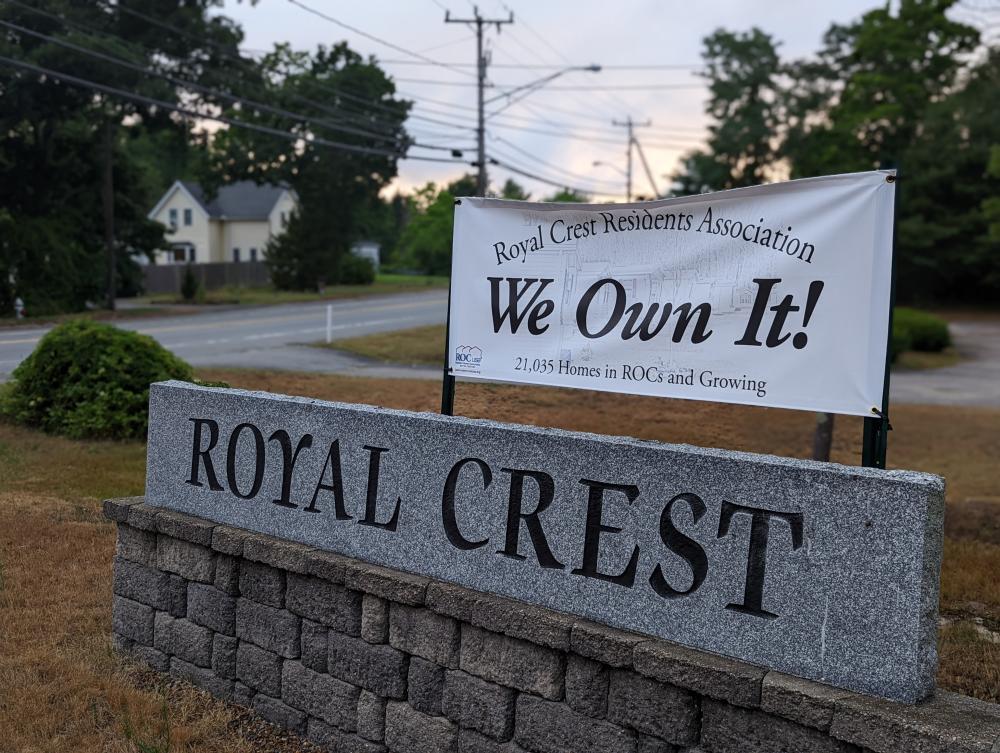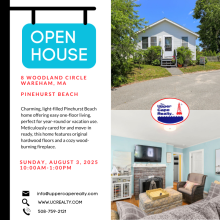Legislators push for manufactured homes to provide housing relief
A solution for Massachusetts’ housing crisis could come from an unexpected place: manufactured homes.
That’s what some legislators at the state house have believed in recent years.
Wareham, like all municipalities in the state, is required by law to have a certain number of affordable housing units based on 10% of town’s year-round population. Wareham has made some progress toward that state requirement, and has built 804 of the required 1,080 units, according to the Executive Office of Housing and Livable Communities’ subsidized housing inventory, which was taken in June 2023.
However, hundreds of low-income families and individuals remain on the Housing Authority’s waiting list.
With the Third Bristol and Plymouth District containing one of the larger populations of mobile homes in the state, Sen. Marc Pacheco has been a part of the effort at the statehouse to have 50% of manufactured housing units per mobile home park qualify as affordable housing.
For example, Pacheco and Third Bristol Rep. Carol Doherty are sponsoring a bill that would establish a manufactured housing commission, a manufactured housing trust fund and regulations on rent.
Manufactured housing includes homes that were mostly built in factories and then delivered to plots of land. Wareham has over a dozen mobile home parks, including Great Hill Estates, Red Wing Estates and Royal Crest — the town’s second resident-owned park.
Pacheco said he and other supporters knew a majority of mobile home park residents would fall within the affordable housing guidelines. Putting this to a test, the Department of Revenue discovered that approximately 60% of residents in mobile home parks are of low-to-moderate income.
The status of being low-to-moderate income is dependent on a person’s gross adjusted income and how it compares to the area’s median income. Based on the latest census, the median income in Wareham is approximately $72,000.
In a test from 2017, the Department of Revenue found that 73 of the 83 mobile home residents in Wareham who filed their tax returns in 2015 have a net adjusted gross income at or below 80% of the area’s median income, according to a report from the department.
But under current state law, those manufactured homes don’t count toward Wareham’s requirements for affordable housing at all.
“[Municipalities] should get credit because they generated affordability by passing — by special permit — these new units that come online,” he added.
If this effort were to succeed, in addition to helping those who need affordable housing, Pacheco said it would be a “win” for the town as half of the existing mobile units would qualify. It would also encourage and incentivize the creation of more of these parks, especially resident-owned parks, which have “very little impact on the community from a service perspective.”
It would also keep rents stable in investor-owned parks as those parks would be subject to rent control by the state. Pacheco said he has seen people pressured into moving out of their dream homes because they couldn’t afford it after a few years as a result of rising expenses.
However, some may be hesitant toward the idea.
Pacheco said investor-owned parks may have to undergo periodic testing in order to verify “the numbers are still beneficial from an affordability perspective.” He said during the permitting process, the town could also negotiate with the private developer a set of standards they want met in regard to affordable housing.
He said there are also parks that may be against the idea as they do not want to have to go through the bureaucratic process.
“Manufactured housing communities provide a great alternative for residents, in particular resident owned parks,” Pacheco said. “I think there's a market there that has not been fully developed and can provide a lot of affordability given what the industrial competition is actually providing.”
He said, “We need a mix of housing strategies to meet the needs of a very diverse housing population in terms of income challenges.”
Back in 1993, the law was changed to allow residents of mobile home parks to purchase the park and share ownership among themselves.
Pacheco said from then on, residents were able to save their housing and investments as many investor-owned parks were driving people out by raising rents, which were then being sustained by people who could afford them, allowing those companies to make “huge profits.”
Royal Crest became officially resident-owned back in August 2022 and with the help of a $1.9 million grant from the state, the park became the first manufactured home community in Massachusetts to ever receive funding from the state’s housing department for affordable housing.
Bob Costa, president of Royal Crest Residents Association Inc., said as far as he knows, everyone at the park is in favor of this affordable housing effort.
Costa said in fact, as a part of the process of getting the grant, the state needed the park to prove they were a majority of low-to-moderate income seniors. Then, the residents signed an agreement with the state that added a lease rider to the application process.
This lease rider stipulates that if a resident plans to sell their home, for the first 90 days it is on sale, the current owner will have to do everything they can to find a buyer who falls in the low-to-moderate income range, according to Costa.
“They wanted to make sure that we could keep this community as affordable as we possibly could going forward for years to come,” he said.
Despite these units being affordable, they do not get counted toward Wareham’s required housing units.
Costa said the rise in resident-owned parks is important as many investment companies are coming in and buying parks only to raise rents and add fees. “This affords people an opportunity to buy something that's affordable, and have a nice community to live in as well,” he said.
He added, “Mobile home communities are affordable housing, and certainly a fantastic opportunity and option for people who are trying to buy a home or elderly who are downsizing and trying to stay somewhere that's affordable on a fixed income.”














